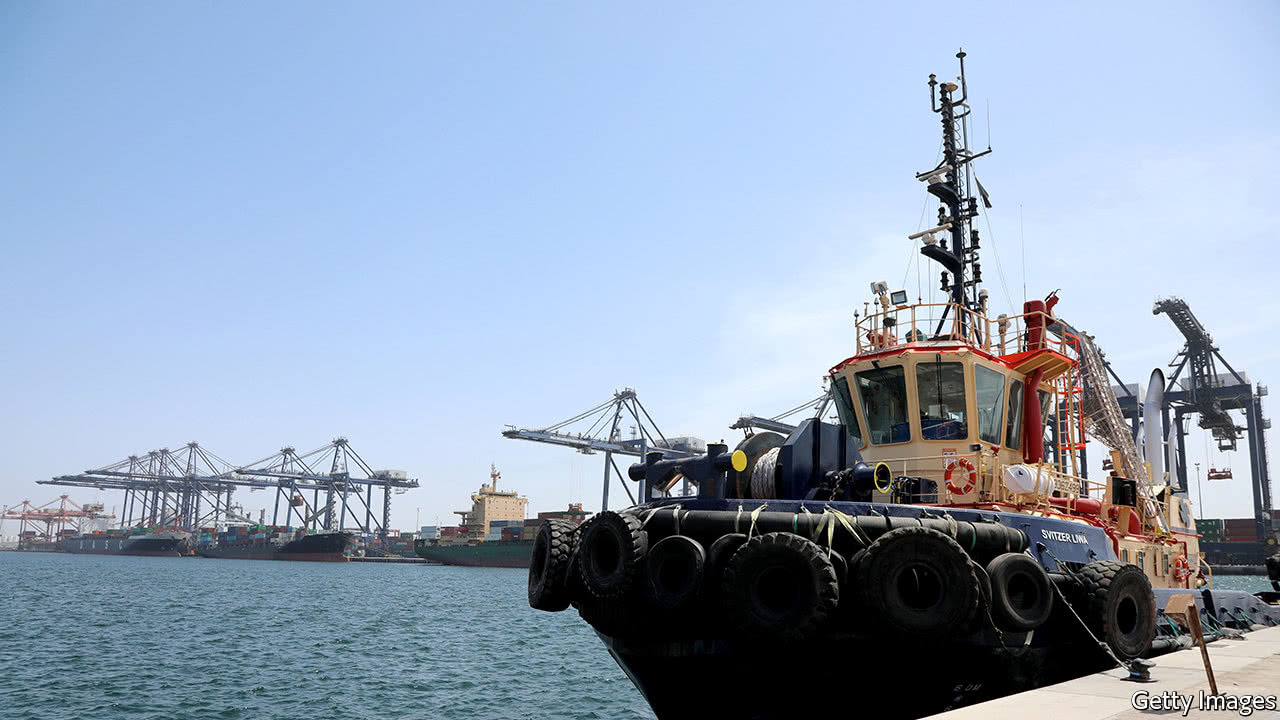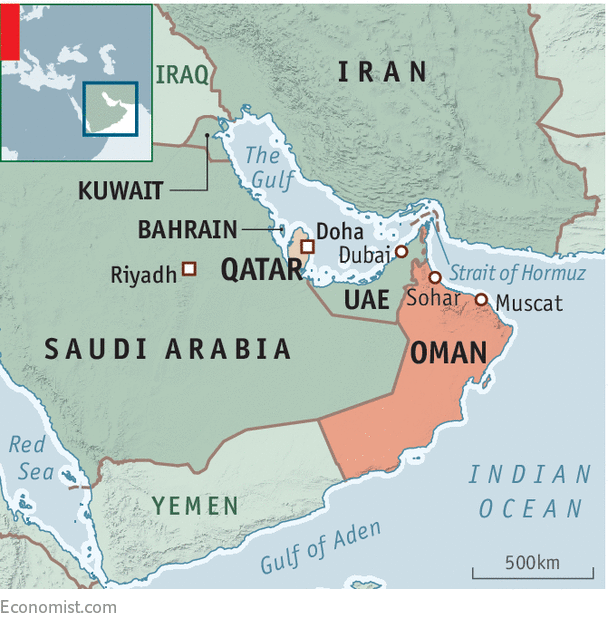As other neighbours seek to isolate Qatar, Oman lets vital supplies get through

THE Omani port of Sohar usually slows down during the summer. But this year it is buzzing. According to a government official, cargo volumes are up by 30% in the past few months, as more ships arrive carrying goods bound for Qatar. Such is the level of traffic that the Qatari ambassador to Oman hails the sultanate’s ports as the new gateway to his country, supplanting the port of Jebel Ali in Dubai, which is part of the United Arab Emirates (UAE).
Oman sits at the entrance to the Persian Gulf, but beyond the Strait of Hormuz there is discord. On the western and southern shores lie Bahrain, Saudi Arabia and the UAE, which have cut diplomatic and commercial ties to Qatar, their neighbour, over its alleged support for extremists and ties to Iran. Oman has stayed out of the dispute. It is helping Qatar to bypass the siege and quietly benefiting from the crisis.
Oman has often acted as a mediator of squabbles in the region. But early in the current crisis, the sultanate showed where its sympathies lie. When Qatar Airways, the national airline, was barred from Saudi airspace in June, Omani aeroplanes (rented by Qatar) ferried stranded passengers from Jeddah to Doha. Since then, ties between the sheikhdoms have strengthened. Nearly 150 Qatari investors showed up for a recent event in Muscat to promote investment in Oman. Only 20 were expected. “A lot of deals were inked,” says an Omani businessman.
“We benefit [from the standoff], but we don’t want to be seen to benefit,” says an Omani official, wary of irritating Saudi Arabia. Oman has a well-earned reputation for pushing back against Saudi dominance in the Gulf. Its ageing ruler, Sultan Qaboos, has stymied big regional initiatives, including efforts to create a single currency. Like Qatar, Oman also has good ties with Iran. So it sees a cautionary tale in the crisis. If Qatar can be punished for its independent outlook, who is to say Oman won’t be next?

Oman’s response has been quietly to reduce its reliance on its closest neighbours. As well as enhancing its ties with Qatar, it has forged new trade links with Iran. A $3.6bn loan from China, signed in early August, helped Oman to fund government spending for the year. In the past, the sultanate turned to Saudi Arabia or the UAE for cash. China is also investing heavily in the port and industrial zone of Duqm, which an analyst describes as “like a Chinese economic city”.
The bullying of Qatar has set the whole region on edge. Mediation efforts by America, Germany and Kuwait have failed to resolve the dispute. Qatar’s decision on August 23rd to re-establish full diplomatic ties with Iran seems to indicate a hardening of its position. For now Oman benefits. But if the feuding continues to undermine the stability of the one part of the Middle East that has been largely free of turmoil, that will not be good for anyone.





